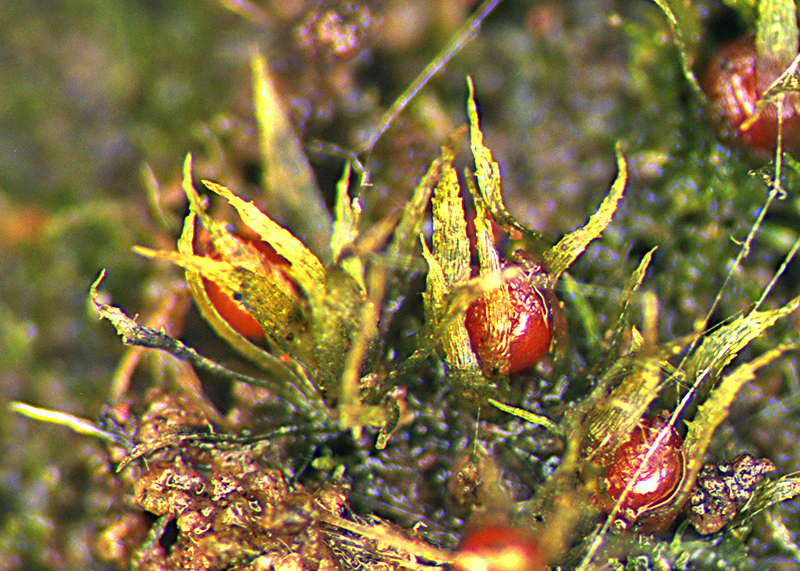
image from: https://inpn.mnhn.fr/espece/cd_nom/5671
Introduction
In the vast and captivating world of bryophytes, the Ephemerum serratum (Schreb. ex Hedw.) Hampe moss stands out as a remarkable and intriguing species. Belonging to the Ephemeraceae family, this tiny moss is commonly known as Ephemerum. Its unique characteristics and ecological roles make it a fascinating subject for enthusiasts and nature lovers alike.
Background
Before delving into the details of this remarkable moss, let’s set the stage with some background information. Bryophytes, often referred to as the “ancient lineage of land plants,” are a diverse group that includes mosses, liverworts, and hornworts. These diminutive yet resilient organisms have played a crucial role in the colonization of terrestrial environments and continue to thrive in various habitats worldwide.
Main Content
Morphology and Identification
The Ephemerum serratum moss is a true marvel of nature, with its delicate and intricate structure. This tiny plant measures only a few millimeters in height, making it easily overlooked by the untrained eye. However, upon closer inspection, its beauty and complexity become apparent.

image from: https://forum.mikroscopia.com/topic/438-ephemerum-serratum-hedw-hampe/

image from: https://waarneming.nl/waarneming/view/226676744?_popup=1
The Ephemerum serratum moss is characterized by its slender, unbranched stems and small, ovate leaves that are serrated along the margins. These serrations, or tooth-like projections, are a distinctive feature that gives the moss its specific epithet, “serratum.”

image from: https://www.britishbryologicalsociety.org.uk/learning/species-finder/ephemerum-serratum/
Global Distribution and Habitat
This remarkable moss species has a

image from: https://inpn.mnhn.fr/espece/cd_nom/5671
widespread distribution, occurring on various continents, including Europe, Asia, Africa, and North America. It thrives in a diverse range of habitats, from disturbed soils and bare ground to

image from: https://inpn.mnhn.fr/espece/cd_nom/5671
rocky outcrops

image from: https://inpn.mnhn.fr/espece/cd_nom/5671
and sandy areas.
One of the fascinating aspects of the Ephemerum serratum moss is its ability to colonize and thrive in ephemeral habitats, such as areas that experience periodic disturbances or temporary moisture availability. This adaptability allows the moss to take advantage of fleeting opportunities and quickly establish itself before conditions become unfavorable.
Ecological Roles and Adaptations
Despite its diminutive size, the Ephemerum serratum moss plays crucial ecological roles in the environments it inhabits. As a pioneer species, it contributes to the stabilization of soil and the facilitation of succession, paving the way for other plant species to establish themselves.
Moreover, this moss exhibits remarkable adaptations that enable its survival in challenging conditions. Its ability to rapidly complete its life cycle and produce spores before the habitat becomes too dry or disturbed is a testament to its resilience. This strategy, known as the ephemeral life cycle, allows the moss to persist and thrive in ever-changing environments.
Case Studies/Examples
One notable example of the Ephemerum serratum moss’s adaptability can be found in its ability to colonize post-fire environments. After a wildfire has swept through an area, this moss is often among the first plant species to reappear, taking advantage of the newly available substrate and reduced competition.
Technical Table

image from: https://inpn.mnhn.fr/espece/cd_nom/5671

image from: https://inpn.mnhn.fr/espece/cd_nom/5671

image from: https://www.nzplants.auckland.ac.nz/en/about/mosses/native-species/Ephemeraceae/Ephemerum-serratum.html
| Characteristic | Description |
|---|---|
| Family | Ephemeraceae |
| Genus | Ephemerum |
| Species | Ephemerum serratum (Schreb. ex Hedw.) Hampe |
| Common Name | Ephemerum |
| Growth Form | Acrocarpous moss |
| Stem | Slender, unbranched |
| Leaves | Small, ovate, serrated margins |
| Habitat | Disturbed soils, bare ground, rocky outcrops, sandy areas |
| Distribution | Widespread across Europe, Asia, Africa, and North America |
| Ecological Role | Soil stabilization, facilitation of succession, pioneer species |
| Adaptation | Ephemeral life cycle, rapid spore production |